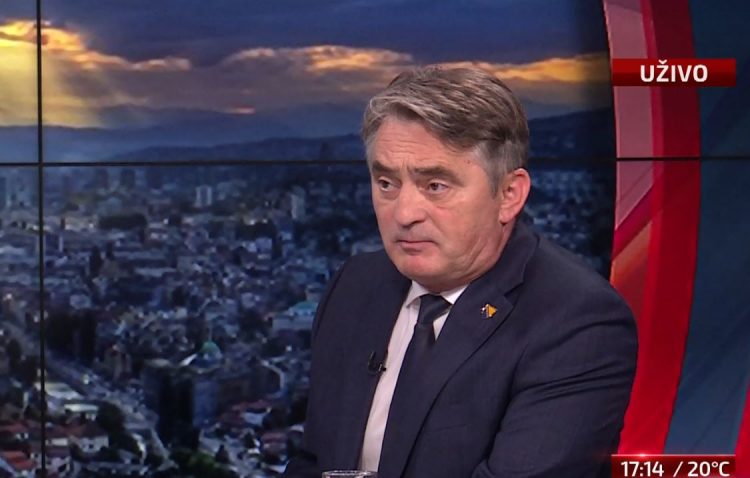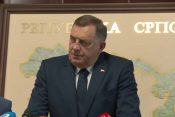
According to the Bosnian Croat member of the country’s tripartite Presidency, Zeljko Komsic, his Bosnian Serb colleague, Milorad Dodik, is trying to justify his support for the agreement BiH parties accepted in Brussels because he is facing strong criticism from opposition parties in the country’s Republika Srpska (RS) entity.
Komsic was referring to the document accepted by the political parties represented in the Parliamentary Assembly of Bosnia and Herzegovina and the members of the BiH Presidency following a lengthy meeting with the senior European Union officials. The document, among other things, reiterates their commitment to preserving and building a peaceful, stable, sovereign and independent functional BiH and the country's EU integration.
“It is clear to me what Mr. Dodik is doing because he has a big problem with his opposition because he agreed immediately at the meeting last night,” Komsic told N1, noting that PDP leader Branislav Borenovic, DNS leader Nenad Nesic and ‘United Srpska’ leader Nenad Stevandic did not agree with the document.
“This is one of the reasons why the document was not signed, but people from the EU, ie the European Council, and the European Commission, said they were satisfied with the verbal consent,” Komsic said.
Komsic said that Dodik usually “does not read” the documents presented to him thoroughly.
“He just doesn’t read some things, he skims over them with the hope that he will be able to interpret them the way he wants. Unfortunately for him and, of course, to our benefit, by agreeing to the implementation of the opinion of the Venice Commission, he agreed to the abolition of the houses of peoples,” he said.
“He then argued that the term ‘Constitutional Court’ is not mentioned, as he was trying to avoid the judgments of the Constitutional Court, primarily those regarding state property. However, the agreement supported includes the term ‘domestic courts’. One of the domestic courts is the Constitutional Court,” Komsic said, adding that he believes Dodik is trying to justify his support for the document because he is facing criticism from the opposition.
“He actually agreed to everything we asked for, and not only to that, but also to what European standards are in terms of court rulings, EC Opinions, the OSCE opinion in terms of the integrity of the voting process,” he said.
Komsic argued that Dodik even agreed to condemn the Russian aggression in Ukraine by agreeing to respect Bosnia’s Foreign Policy.
“We follow the EU's foreign policy in accordance with the Stabilization and Association Agreement,” Komsic said.
He noted that Dodik asked for the Preamble of the document which defines the position of the EU condemning the aggression against Ukraine to state that he has objections.
“He said that he was against that and that this represents his separate opinion where he claims that the Presidency of BiH should now define its position on Russia's aggression against Ukraine,” he said.
Komsic said he responded to this, saying that he does not want to discuss the issue since BiH already established its position on it by signing the Stabilization and Association Agreement which “harmonises the foreign and security policy with EU policy, and this means, of course, that we follow the EU in all its activities when it comes to aggression against Ukraine.”
Komsic said that, while the term ‘Constituent peoples’ is stated in the Preamble of the agreement which describes the current situation in BiH, the second part of the document says those who accept it are committed to the implementation of judgments of the European Court of Human Rights and the opinion of the Venice Commission.
He also commented on Dragan Covic, the leader of the strongest Croat party in BiH, not participating in the Brussels meeting. Komsic said COvic made a “big mistake” created “damage for his political party and for himself.”
“This mistake will surely cost him, whether it will be in Brussels, or from (Croatia’s PM Andrej) Plenkovic who really made an effort and invested his authority to convene this type of meeting,” Komsic said.
“In my opinion, this is a good document and it is unfortunate that it was not signed because it would then represent a stronger obligation, but in the end, it is obvious that the European Council and official Brussels believed that an oral agreement was sufficient,” he said.







Kakvo je tvoje mišljenje o ovome?
Budi prvi koji će ostaviti komentar!